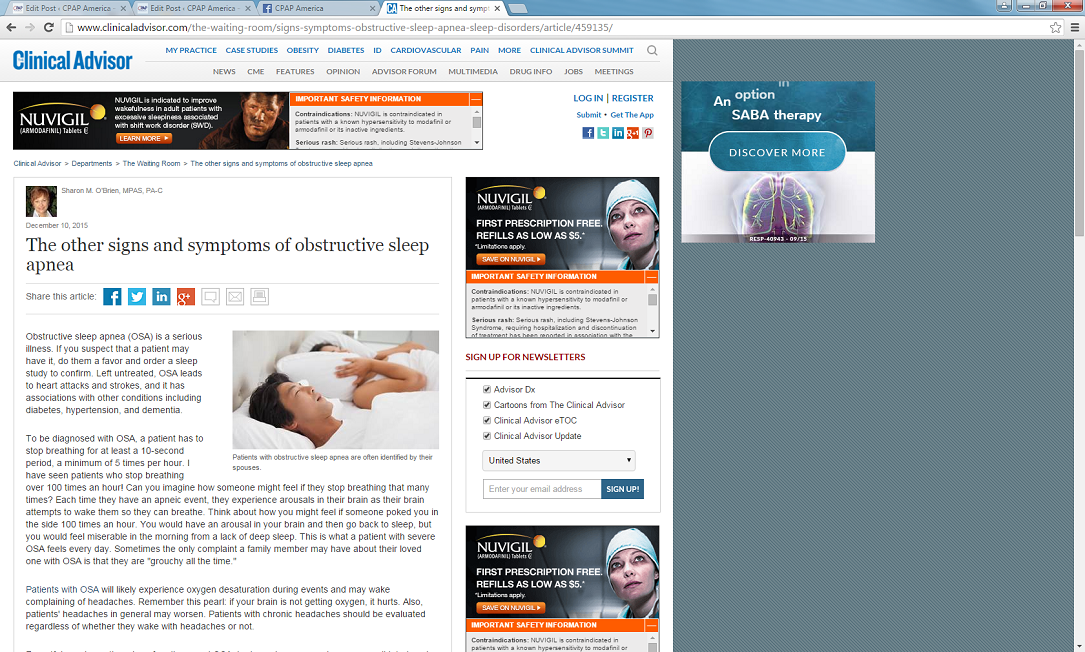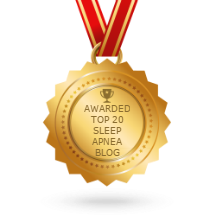
Ignoring Obstructive Sleep Apnea Could Be Deadly
Obstructive sleep apnea (OSA) is a serious illness. If you suspect that a patient may have it, do them a favor and order a sleep study to confirm. Left untreated, OSA leads to heart attacks and strokes, and it has associations with other conditions including diabetes, hypertension, and dementia.
To be diagnosed with OSA, a patient has to stop breathing for at least a 10-second period, a minimum of 5 times per hour. I have seen patients who stop breathing over 100 times an hour! Can you imagine how someone might feel if they stop breathing that many times? Each time they have an apneic event, they experience arousals in their brain as their brain attempts to wake them so they can breathe. Think about how you might feel if someone poked you in the side 100 times an hour. You would have an arousal in your brain and then go back to sleep, but you would feel miserable in the morning from a lack of deep sleep. This is what a patient with severe OSA feels every day. Sometimes the only complaint a family member may have about their loved one with OSA is that they are “grouchy all the time.”
Patients with OSA will likely experience oxygen desaturation during events and may wake complaining of headaches. Remember this pearl: if your brain is not getting oxygen, it hurts. Also, patients’ headaches in general may worsen. Patients with chronic headaches should be evaluated regardless of whether they wake with headaches or not.
Forgetfulness is another sign of undiagnosed OSA. In deep sleep, memories are consolidated each night. If a patient is not getting deep sleep or they have interrupted sleep, then they are not going to remember things as they would normally. Common complaints are not remembering where they put their keys (or other small objects) and forgetting people’s names.
To view the rest of this obstructive sleep apnea related article, click below:
You can buy CPAP Machines, tubing and all of your CPAP supplies at CPAP America, 707 Mantua Pike, West Deptford, NJ 08096. Feel free to contact us at 1-800-569-0167.
You can also reach us via email here.

